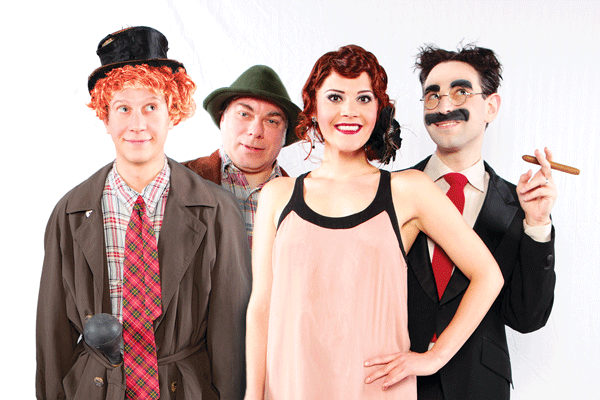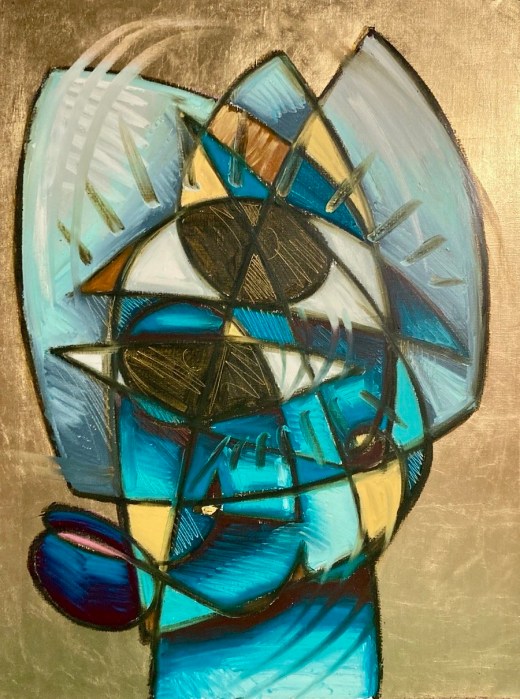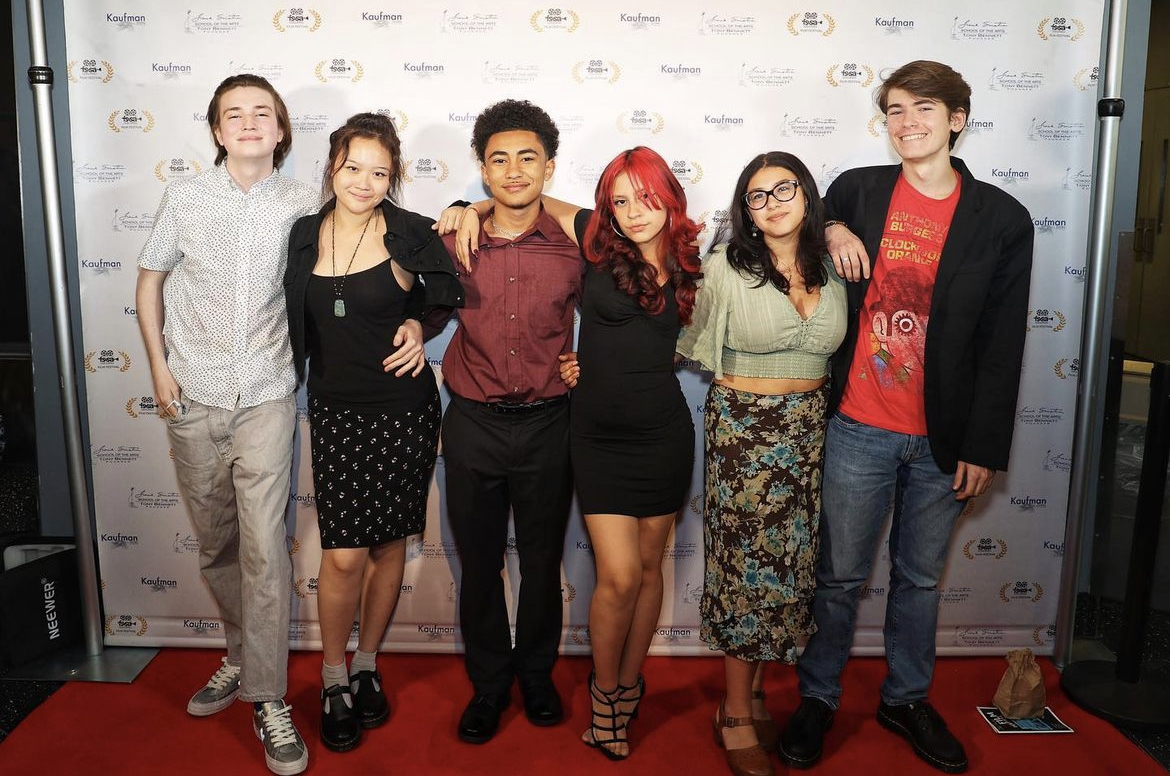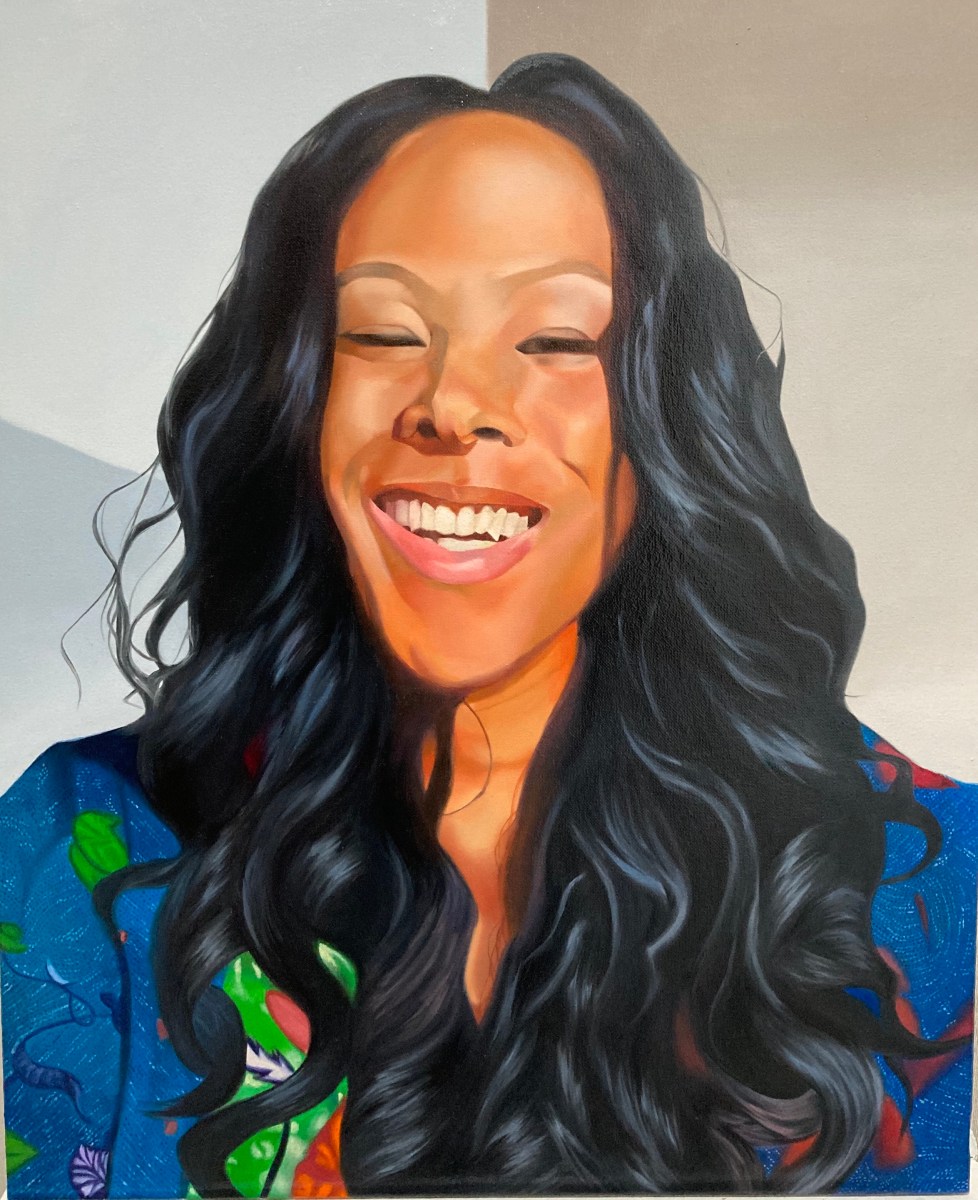
L to R: Seth Shelden, Robert Pinnock, Melody Jane & Noah Diamond in the May 23 & 25 Marxfest production of “I’ll Say She Is.”
BY SAM SPOKONY | As the story goes, four of the five Marx Brothers got their iconic nicknames during a poker game in 1914, years before they broke out and became one of America’s most beloved comedy acts. It was the vaudevillian, Art Fisher, who bequeathed the monikers as he was dealing to each brother — all still in their 20s at that time — around a table in Illinois, about 1,000 miles away from their hometown of New York City.
Leonard, the oldest, became Chicko (later Chico), because of his penchant for chasing chicks, and Arthur, a year younger, became Harpo, because — although he couldn’t read music — he was already an excellent performer on the harp. It’s generally believed that it was the especially cantankerous shtick of the middle brother, Julius, that earned him the name Groucho, while younger brother Milton’s rubber-soled galoshes got him the title of Gummo. And it would be only a few years, of course, until Gummo was replaced in the family act by the youngest brother, Zeppo (née Herbert).
Fest features first-ever revival of Marx Brothers’ debut Broadway musical
One hundred years later, the names, faces and, above all, the gags of the Marx Brothers remain imprinted on our culture like those of few other performers in history.
“The simple thing is, they’re still funny,” said writer, performer and vaudeville historian Trav S.D., one of the organizers of Marxfest — a month-long, citywide extravaganza marking the centennial of the famous naming, and celebrating the many triumphs of the brothers’ work on screen and stage.
“There’s always been this major theme, especially in American comedy, of the outsider who becomes a sort of anti-aristocratic figure, someone you root for as the little guy,” he continued. “And there’s a certain irreverence about the Marxes that really tapped into that feeling, and it’s part of why they remain funny to so many people today, even while so many of their contemporaries became dated.”
At this point, we’re halfway through Marxfest, which has included screenings of their movies “Monkey Business” (1931) and “A Night at the Opera” (1935), several historical talks about the era and, perhaps most notably, a May 4 forum featuring famed talk show host Dick Cavett, who, along with chatting many times with Groucho on “The Dick Cavett Show,” also had the honor of introducing the mustachioed, cigar-smoking wisecracker at his famous 1972 appearance at Carnegie Hall.
But the hijinks and hysterics are still far from over, with several screenings still to come — including the fan favorite, “Duck Soup” (1933) — as well as some particularly unique programming that could provide some new insight into the influential comedy team, even for diehards.
Meanwhile, for anyone who feels compelled to do some historical boning up in advance of attending a Marxfest event, Trav S.D. has got you covered on that end as well. Aside from being a frequent contributor to this newspaper, S.D. has literally written the book(s) on some of this stuff, authoring both “No Applause, Just Throw Money: The Book That Made Vaudeville Famous” and “Chain of Fools: Silent Comedy and Its Legacies from Nickelodeons to YouTube.”
Tapping into that wealth of knowledge, he’s paying tribute to the Marxes throughout the month of May, by writing a daily commentary about all of their film and television appearances (both as an act and as solo performers), one at a time, on his blog, Travalanche (travsd.wordpress.com). So if you don’t want to make the embarrassing mistake of letting a Rufus T. Firefly reference go over your head before a screening, check it out!
But of course, there’s more to celebrating the Marx Brothers than laughing at your favorite film for the umpteenth time. In the case of this festival, you can also see the Marxes’ first Broadway musical, 1924’s “I’ll Say She Is,” performed live on stage (on May 23 and 25, at The Players Theatre in the South Village).
Oh, you’ve never seen that one performed live before, eh? Maybe you weren’t even aware it existed. Well, don’t feel too left out — shockingly enough, “I’ll Say She Is” hasn’t been brought back to the stage since its original run 90 years ago (whose opening night was also the last time the brothers were ever publicly billed as Julius, Arthur, Leonard and Herbert). The show has also become somewhat of a forgotten gem for casual fans, because the Marx Brothers’ second and third Broadway musicals — “The Cocoanuts” (1925) and “Animal Crackers” (1928) — were, of course, quickly adapted to the screen and popularized as the films we’ve come to know and love.
The long-awaited adaption of “I’ll Say She Is” was put together by Marx Brothers historian and Marxfest co-organizer Noah Diamond (who will be co-starring in the show as Groucho), and is produced and directed by none other than Trav S.D.
“It’ll be an oddly familiar show for fans, because it’s as funny as their early movies, but it’s a different story, with different jokes,” S.D. said of the 90-year-old musical, which he explained is really more of a Broadway revue, with fragmented smatterings of sketches and songs, than a solidly plot-driven show. Among other things, he also mentioned that Zeppo’s role in “I’ll Say She Is” is more prominent than his place in the brothers’ later, more well-known work.
MARXFEST AT-A-GLANCE
More info at marxfest.com
May 22:
“A Day at the Races”
free screening
at Epiphany Library
“Duck Soup”
screening at MoMA
The Pinch Brothers
in “The Bawdy House”
at the Players Theatre
May 23:
“I’ll Say She Is”
at the Players Theatre
May 24:
“Room Service”
screening at Astoria
Historical Society
The Love Song
of J. Cheever Loophole
at Kabin
May 25:
“I’ll Say She Is”
at the Players Theatre
May 27:
Theatre Museum Gala
at the Players Club
May 29:
“Horse Feathers”
free screening
at Epiphany Library
We’re All Mad Here
free lecture
at Mid-Manhattan Library
May 31:
Marx Brothers & Algonquin Round Table Walking Tour
Marx Brothers Speakeasy Party, with Wit’s End
at Flute
“Essentially, this is now a brand new Marx Brothers show, and that’s kind of an incredible gift,” S.D. continued. “So we all agreed that Marxfest was clearly the ideal place, the perfect forum in which to bring it to life.”
He added that the May 23 and 25 performances will only be the beginning of the “I’ll Say She Is” revival, as a full production run will follow the festival dates (although those details are still under wraps).
Another particularly exciting Marxfest event, organized and hosted by Noah Diamond — taking place on May 24 at Kabin bar and lounge in the East Village — will feature the unlikely friendship that grew between Groucho and T.S. Eliot, the famed British poet and playwright who was just about two years older than the comedian.
As that story goes, the correspondence between the two began in the spring of 1961, when Eliot wrote a letter to Groucho requesting a photo, in a manner that was, surprisingly enough, not very much unlike any other gushing Marx Brothers fan. After expressing some disappointment that the photo he eventually received didn’t show Groucho holding one of his trademark cigars, the poet was then overjoyed to get another one that did feature a cigar.
“You will have learned that you are my most coveted pin-up,” an effusive Eliot wrote to Groucho in April 1961, after receiving that second photo — to which the poet responded in kind, at the comedian’s request, by sending a portrait of himself. Groucho, never one to be verbally outdone, reacted to that image with some compliments of his own.
“I had no idea you were so handsome,” the wisecracker wrote to Eliot in June of the same year. “Why you haven’t been offered the lead in some sexy movies I can only attribute to the stupidity of the casting directors.”
It should be stressed that this correspondence — consisting of a total of 11 letters — was itself no joke, and revealed a deeply genuine respect between two giants of their generation.
“It’s an interesting and slightly offbeat corner of the Marx saga,” said Diamond, whose May 24 event will include a reading of the Groucho/Eliot letters, as well as a discussion of the comedian’s forays into poetry, alongside the poet’s forays into comedy. “I’ve always been fascinated by the fact that these two guys were friends, and had a mutual admiration society.”
Perhaps the most striking element of the friendship was displayed after the two men finally met in person in June 1964, when Groucho had dinner with Eliot and his wife. According to letter Groucho wrote, shortly afterwards, to his brother Gummo, he was thrilled to have met Eliot, but just a little bit disappointed by the dinnertime discussion. While the comedian had wanted to talk serious literature — he’d prepared by reading Eliot’s “The Waste Land” three times just before the meeting — the poet was more interested in discussing “Animal Crackers,” “A Night at the Opera” and, specifically, the courtroom scene from “Duck Soup.”
In the end, Groucho told Gummo that he and Eliot shared three things in common: affection for good cigars, cats and making puns. But the connection, of course, ran deeper than that.
“I like what [the meeting of Groucho and Eliot] says about art, artists and the supposed line between ‘high’ and ‘low’ art,” said Diamond. “I’ve always considered the Marx Brothers’ best work to be high art, no less than that of a literary giant like Eliot. Eliot’s adoration also reminds us of the special depth of the Brothers’ appeal. It’s impossible to imagine, say, William Carlos Williams writing a fan letter to the Three Stooges.
“I find the Groucho/Eliot relationship touching,” he continued. “Groucho always wanted to think of himself as a literary figure; he wrote several books, and co-wrote some plays and screenplays. His best friends were almost all writers, and he preferred their company to that of performers. In Groucho’s literary ambition, and love of writers, I detect a desire to be taken seriously, to be seen as an artist (though Groucho wouldn’t have used that word to describe himself). How many ex-vaudevillians were friendly with T.S. Eliot? Exactly one.”
And for yet another event to look out for as Marxfest continues, we turn back once more to Trav S.D., who on May 29 (at the Mid-Manhattan Library, at 40th St. and Fifth Ave.) will host a rousing discussion entitled “We’re All Mad Here: The Marx Brothers in Context.”
This will be one for the diehard vaudeville history buffs, during which S.D. will talk not only about the origins of the iconic Marx Brothers act, but also about the early-20th century group acts — such as Weber and Fields, Smith and Dale, and the Avon Comedy Four — that paved the way for Groucho and company.
“Everyone knows that Groucho continued to be such a big star throughout his career,” said S.D., “but it’s important to remember that the Marx Brothers really came from somewhere, that there were antecedents who had a strong effect on them, and that the brothers also had contemporaries who resembled them.”
One of those contemporaries, Eddie Cantor, will certainly factor into that discussion — as any of our readers who saw S.D.’s relatively recent piece on the performer, known as “Banjo Eyes,” might expect.
“Overall, I’m just interested in tying the past to the present, because it’s really true that there’s nothing new under the sun,” said S.D. “You can look at somebody new like Sacha Baron Cohen and see the kind of precedents set by the Marx Brothers, because there are these cultural elements, these aspects of the satire, that have always brought people together, whether they’re young or old.”
Meanwhile, the host himself — who got turned on to the Marx Brothers as a teenager some three decades ago — pointed out that it isn’t only Marxfest attendees who are getting a kick out of all this.
“This is like my Comic Con, to be meeting all these people who just as invested in this stuff as I am,” said S.D. “I’m having the time of my life here.”

















